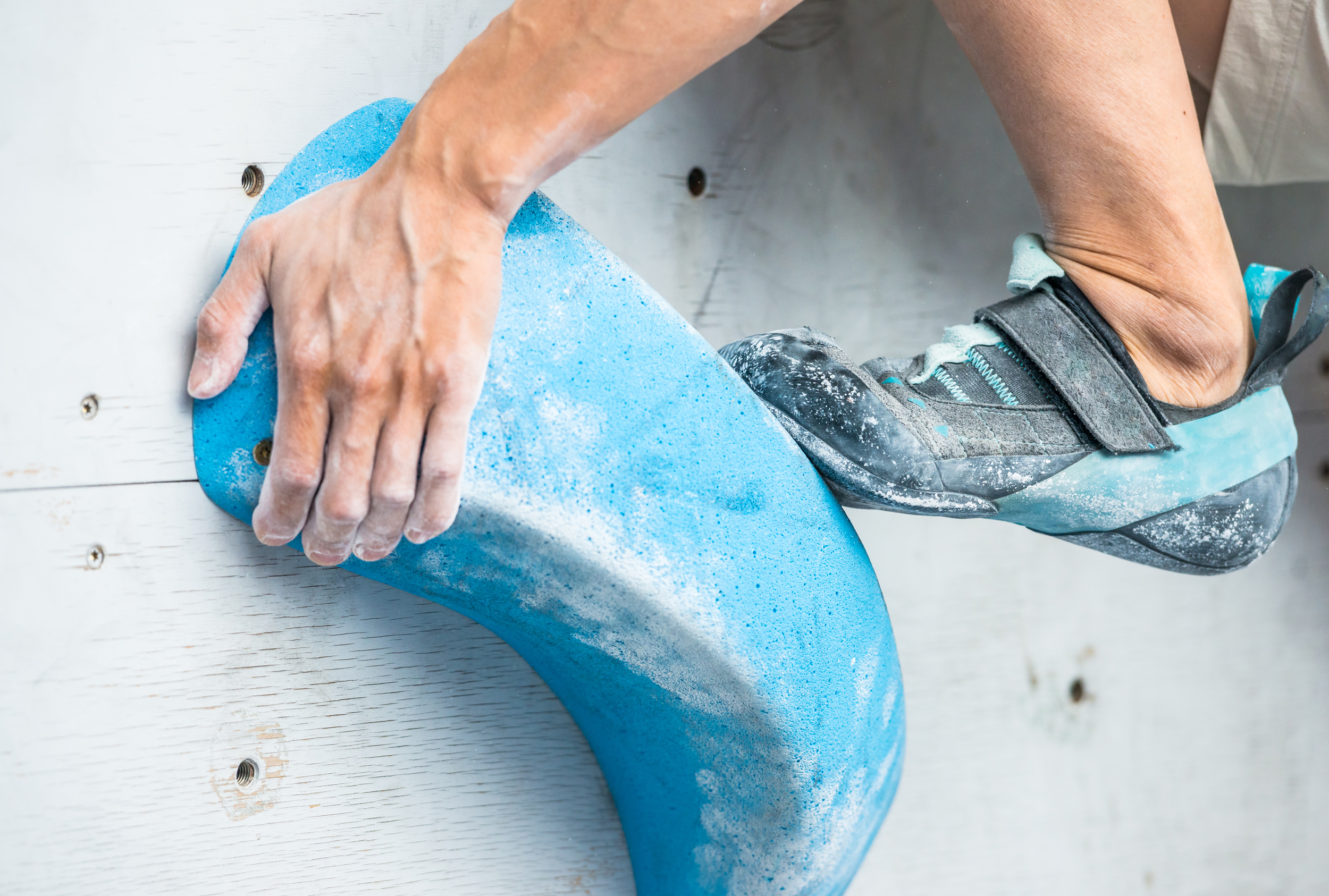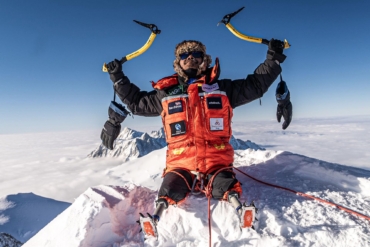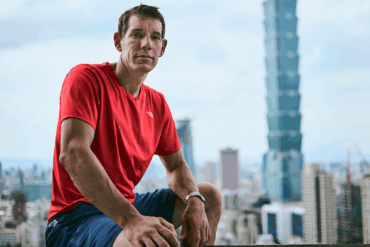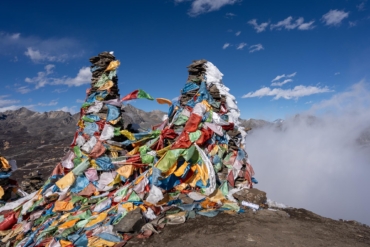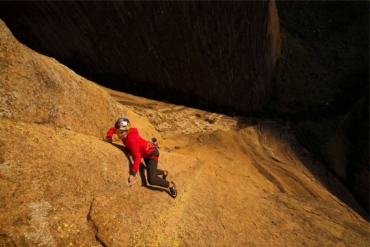IFSC Speed and Lead World Cups took place at the historic Place du Rendez-Vous in Villars, Switzerland, over the weekend.
A new speed climbing record, another unparalleled lead performance from Janja Garnbret, plus near-sweeps by China and the U.S. kept the excitement high from start to finish.
Here’s a wrap on this year’s Speed and Lead Climbing World Cup in Villars.
Stay tuned for the Paraclimbing Lead World Cup, which will take place at the Place du Rendez-Vous from July 8 to 9.
IFSC Lead World Cup Villars

The second lead event of the season came to a close Saturday evening after 2 days of intense qualifications and spellbinding finals rounds in both divisions.
Scoring the Lead Climbing Competition
Lead rounds feature a single sport route roughly 50 feet tall and overhanging. Each hold on the route corresponds to a number, with 1 being the closest to the ground. Competitors are limited to a single attempt; if they fall, their attempt is over.
The climber that reaches the highest hold without falling receives the highest score. If multiple climbers reach the same height, the climber who reaches that height the fastest wins.
Women’s Lead Competition

Slovenia’s Janja Garnbret continued to reign supreme in Villars, claiming her second lead win of the season and 50th World Cup title.
As the only climber to top the women’s finals route, the 23-year-old Olympic champ maintained dominance through to the end. It’s the 34th World Cup gold medal of her unfathomably stellar career and 50th IFSC medal overall.
Americans Brooke Raboutou and Natalia Grossman rounded out the women’s lead podium.
After placing third in last week’s lead competition, 21-year-old Raboutou upgraded to silver in Villars, scoring 37+. It’s the continuation of a strong season for the Olympian, who claimed three medals during this year’s Boulder World Cup series.
Grossman took home her first lead medal of the season with her 35+ finals performance. It could be a sign of things to come for the 21-year-old, who claimed the women’s IFSC Boulder World Cup title for 2022 in Innsbruck.

Women’s Results
- Janja Garnbret (SLO): Top
- Brooke Raboutou (USA): 37+
- Natalia Grossman (USA): 35+
- Laura Rogora (ITA): 31+
- Manon Hily (FRA): 28+
- Chaehyun Seo (KOR): 17+
- Ryu Nakagawa (JPN): 17+
- Natsuki Tanii (JPN):d 17+
Men’s Lead Competiton
Japan’s Taisei Homma ascended to gold and his first IFSC World Cup medal, scoring 36+ in the final round. Though the 22-year-old has recently shown major promise on the collegiate circuit, he’s less well-known in the World Cup scene, and his victory in Villars was hardly expected.
Americans Jesse Grupper and Colin Duffy took silver and bronze, respectively. The pair also shared the podium at last week’s opening lead competition in Innsbruck.

Grupper, who had placed third in Innsbruck, improved his performance this weekend. The 25-year-old showed bottomless endurance in finals, only popping off at the 34+ mark when he undershot a hold near the top. If Grupper’s 2022 track record is any indication, he’ll grab gold next week in Chamonix.
Duffy, who made men’s IFSC history with back-to-back wins in Innsbruck, showed impressive strength on the harder sequences in Villars, notching a score of 34. A slip of his foot during the finals round in Villars landed the 18-year-old with a proud bronze and a reputation for podiuming.

Men’s Results
- Taisei Homma (JPN): 36+
- Jesse Grupper (USA): 34+
- Colin Duffy (USA): 34
- Yannick Flohé (GER): 33
- Satone Yoshida (JPN): 27+
- Yoshiyuki Ogata (JPN): 26+
- Mejdi Schalck (FRA): 19+
- Ao Yurikusa (JPN): 18+
IFSC Speed World Cup Villars
China claimed five out of six possible medals in the Villars speed events, where both the men’s and women’s fields experienced record-breaking performances.
Scoring Speed Climbing
The scoring for speed climbing is different but pretty simple. In the qualification round, climbers get two attempts to scale the 49-foot wall and log their fastest time. Those times are then used to rank the climbers first through 16th place.

In the finals round, the top-ranked climber will race against the bottom (or 16th) seed, the second seed goes against the 15th, the third seed goes against the 14th, etc. The winners from each race move on to the next round, where the climber in first place races the one in eighth, second against seventh, etc.
Once four climbers remain, they get to duke it out for the podium. First- and second-place climbers compete in the “big” final, while third- and fourth-place climbers compete in the “small” final.
Women’s Speed Competition

Qualification and finals rounds combined made for a historic event in women’s speed climbing history. In the semifinal round, four women dipped below the 7-second mark, more than doubling the number of female climbers that have ever pulled off the feat.
In the end, China’s Deng Lijuan and Niu Di claimed gold and silver, respectively. Deng’s final round saw her reach the top in just 6.87 seconds, nearly 1.5 seconds faster than Niu, who finished with 8.22 seconds down.
In the small final, Indonesia’s Desak Made Rita Kusuma Dewi rang to bronze with 7.06 seconds. Her performance bested that of Poland’s Anna Brozek, who was hot on her heels but finished in fourth with 7.39 seconds.

Women’s Results
- Deng Lijuan (CHN)
- Niu Di (CHN)
- Desak Made Rita Kusuma Dewi (IND)
- Anna Brozek (POL)
Men’s Speed Comp

China’s Long Jianguo (5.23 seconds), Wu Peng (5.24 seconds), and Long Jinbao (5.16) swept the men’s podium, with Jinbao Long beating out Indonesia’s Veddriq Leonardo for bronze in the small final.
In qualifications, Indonesia’s Kiromal Katibin proved absolutely incendiary, felling the men’s world record not once, but twice. In the first round, Katibin completed the route in just 5.09 seconds, his third world record in four events. He then returned in the second round to best his nascent record with just 5.04 seconds on the clock.
Harrowingly, Katibin’s precision didn’t carry through to finals, where he fell partway up the route.
Men’s Results
- Long Jianguo (CHN)
- Wu Peng (CHN)
- Long Jinbao (CHN)
- Veddriq Leonardo (INA)

